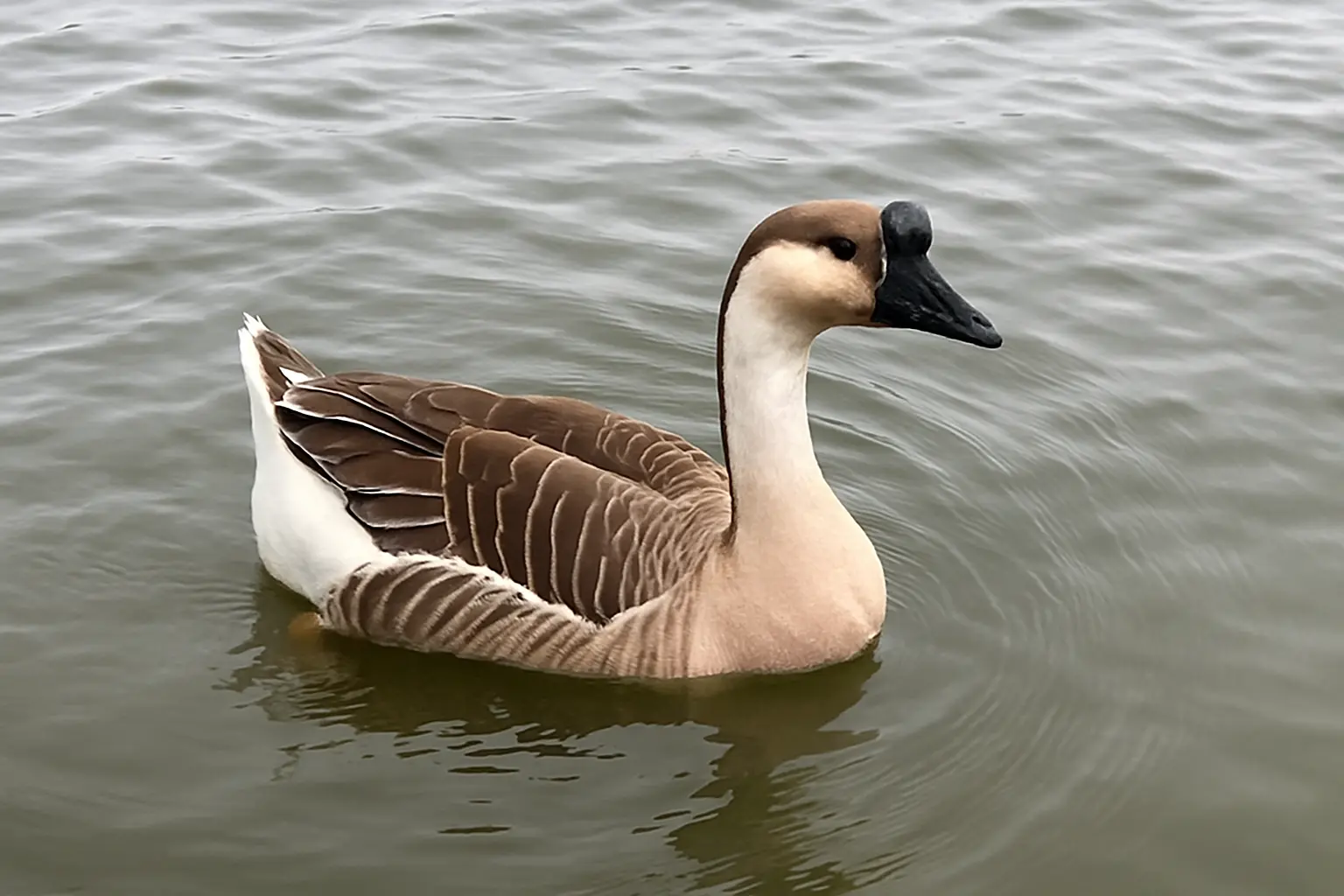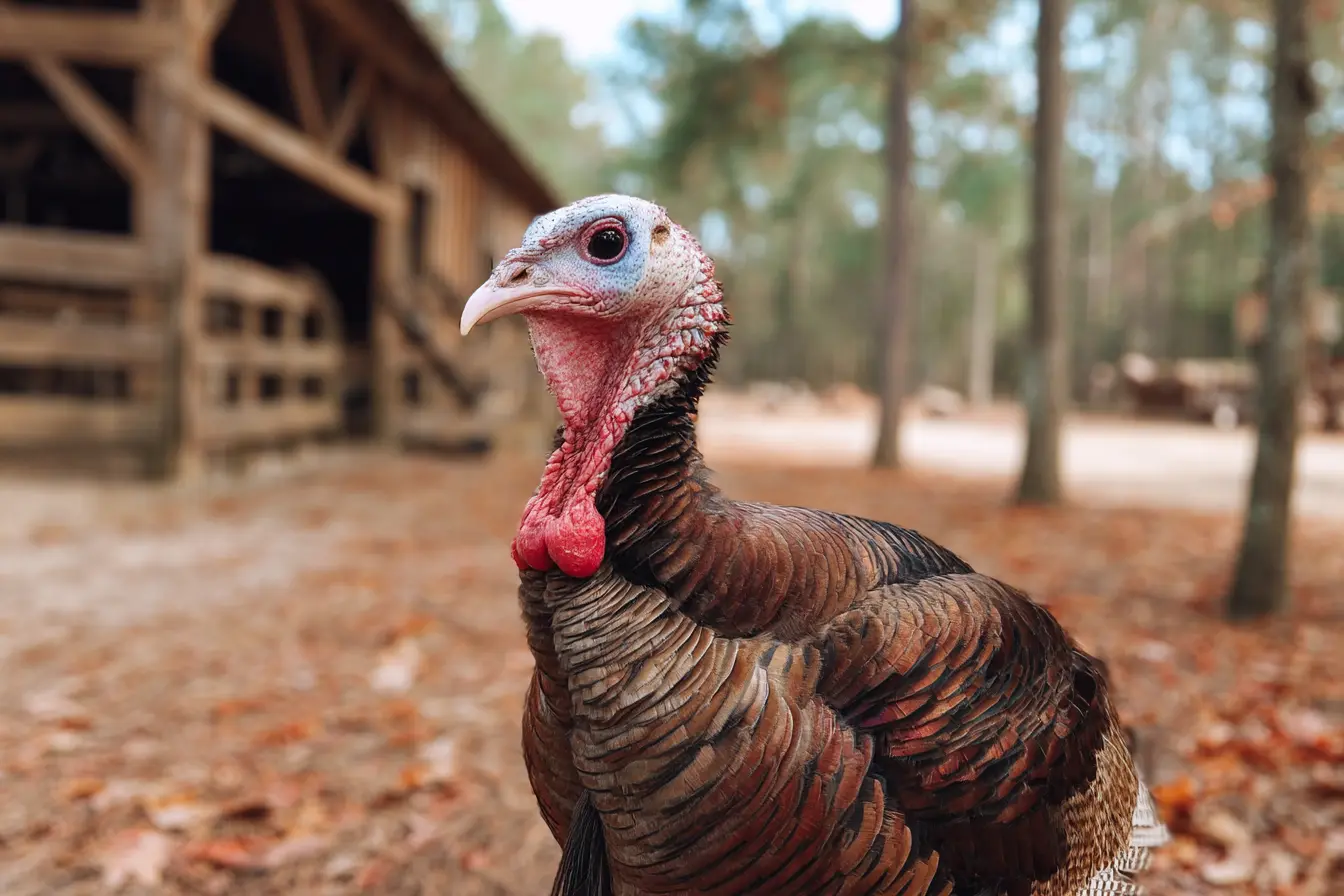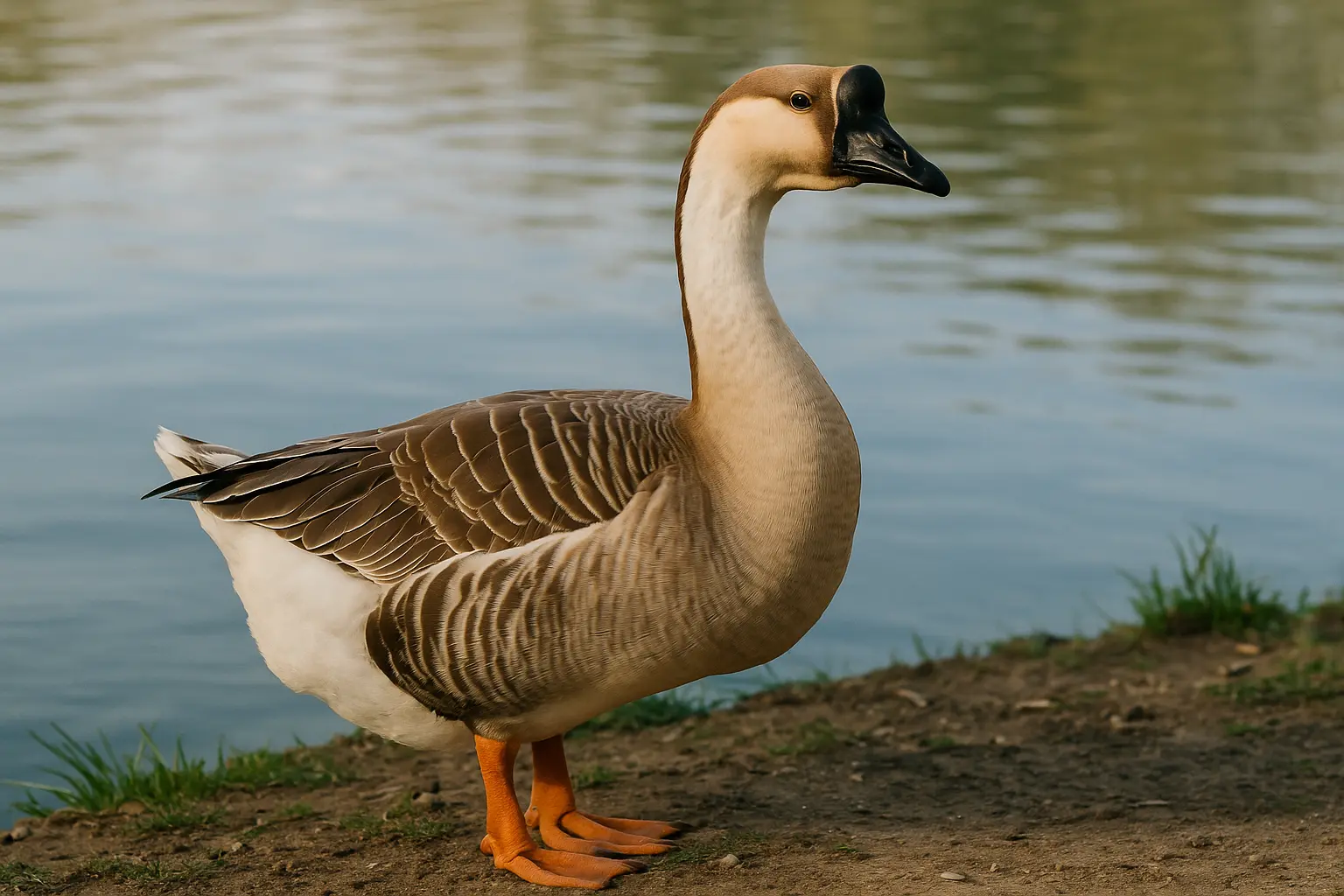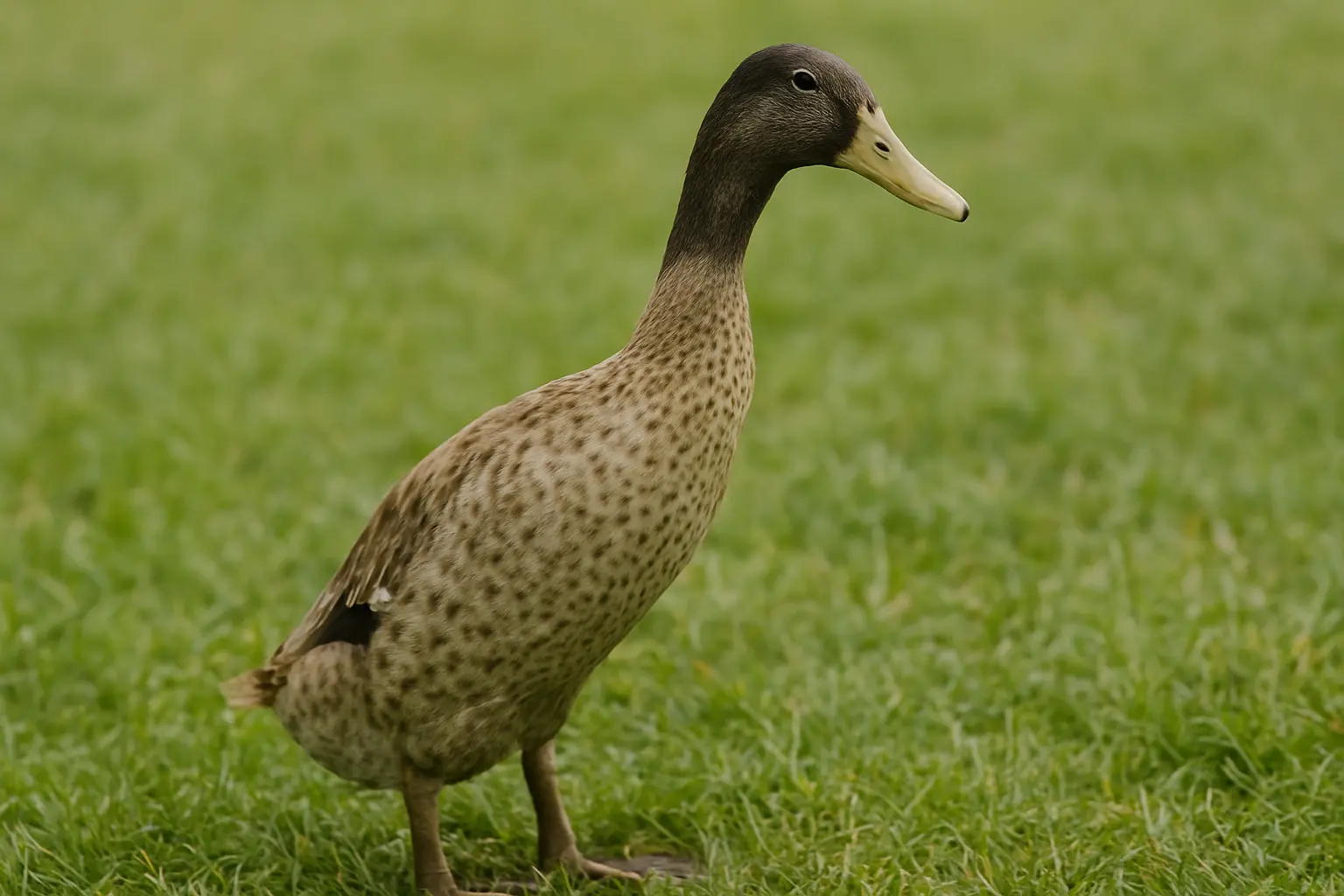
A Complete Guide to Keeping African Geese
African geese are a striking and unique breed known for their large size, distinctive appearance, and friendly yet protective nature. Whether you're considering keeping them for their ornamental value, meat production, or as natural lawn mowers, African geese can be a rewarding addition to your smallholding or backyard.
This comprehensive guide will provide everything you need to know about keeping African geese in the UK, covering housing, feeding, health, and general care.
Introduction to African Geese
Despite their name, African geese are believed to have originated from China, descending from the wild swan goose (Anser cygnoides). They are closely related to Chinese geese but are larger, heavier, and have a more pronounced basal knob on their foreheads.
Key Characteristics:
- Lifespan: 10-15 years with proper care
- Size: Large (ganders weigh 9-12 kg; geese 7-9 kg)
- Temperament: Social, intelligent, and alert
- Appearance: Brown or white feathers, a distinctive knob on their bill, and a graceful, upright posture
- Egg Production: 20-40 large white eggs per year
- Hardiness: Adaptable to the UK's climate with appropriate shelter
Why Choose African Geese?
African geese offer a range of benefits, making them a popular choice for poultry keepers:
- Distinctive Appearance: Their impressive size and elegant posture make them a standout addition to any flock.
- Excellent Guard Animals: Their loud honk and alert nature make them effective deterrents against intruders.
- Great Grazers: They efficiently control grass and weeds, reducing the need for mowing.
- Friendly and Loyal: When raised with regular handling, they form strong bonds with their owners.
- Dual-Purpose Breed: Ideal for both meat and ornamental purposes.
- Low Maintenance: Once established, they require minimal care compared to other livestock.
Housing Requirements for African Geese
Proper housing is essential to ensure your African geese stay safe, comfortable, and healthy.
Shelter Requirements
- Size: Provide at least 1-1.5 square metres per goose inside the shelter.
- Bedding: Use straw, hay, or wood shavings to keep the shelter clean and dry.
- Ventilation: Good airflow is essential to prevent dampness and respiratory issues.
- Security: Ensure the shelter is predator-proof to protect against foxes and other threats.
- Access: A wide, low entrance allows easy access for geese, as they prefer walking in rather than climbing.
Outdoor Space
African geese are active and need plenty of space to graze and exercise.
- Minimum Space: Allow at least 20-30 square metres per goose for grazing.
- Fencing: Use sturdy fencing at least 90 cm high to prevent wandering and keep predators out.
- Water Access: Provide a pond, trough, or large shallow container for bathing and drinking.
Tip: Rotate grazing areas to prevent overgrazing and maintain healthy grass.
Feeding Your African Geese
A balanced diet is crucial to keeping African geese healthy and productive.
Essential Nutrition
- Grazing: African geese thrive on fresh grass and should have access to pasture daily.
- Pelleted Feed: Provide a high-quality waterfowl pellet containing 16-18% protein.
- Grains: Supplement their diet with wheat, oats, and barley in moderation.
- Fresh Vegetables: Leafy greens, such as lettuce and cabbage, are excellent additions to their diet.
- Grit: Essential for digestion and breaking down food in their gizzard.
- Clean Water: Ensure a constant supply of fresh, clean water for drinking and preening.
Feeding Tip: Avoid feeding processed human foods, as these can cause digestive problems and nutritional imbalances.
Health and Common Concerns
African geese are generally hardy but require regular health checks and preventative care.
Common Health Issues:
- Wet Feather: Caused by inadequate preening opportunities or dirty water.
- Bumblefoot: A bacterial infection that affects the foot pads, often caused by rough or dirty ground.
- Parasites: Regularly check for external parasites such as lice and mites.
- Respiratory Problems: Prevent damp or draughty housing to avoid respiratory infections.
- Obesity: Monitor food intake, as African geese are prone to weight gain if overfed.
Preventative Care: Maintain clean housing, provide a balanced diet, and observe them regularly for signs of illness.
African Goose Behaviour and Handling
African geese have a friendly and curious nature but can also be protective and territorial.
- They form strong bonds with their keepers and other flock members.
- They can become territorial during breeding season and may hiss or honk to protect their space.
- Regular handling from a young age helps them become more sociable and easier to manage.
- They enjoy routine and thrive when their feeding and care schedules are consistent.
Handling Tip: Approach geese calmly and confidently, offering treats to build trust and positive interactions.
Egg Production and Collection
Although not prolific layers, African geese provide a modest number of large, nutritious eggs.
Egg-Laying Habits:
- They typically start laying eggs at around 9-12 months of age.
- Expect 20-40 eggs per year, primarily in the spring and early summer.
- They may become broody and sit on their eggs if provided with a suitable nesting area.
- Their eggs are excellent for baking and cooking.
Egg Collection Tip: Provide secluded nesting areas with soft bedding to encourage laying and make collection easier.
Winter Care for African Geese
African geese are well-suited to the UK's climate but require extra care during colder months.
- Insulated Shelter: Provide additional bedding and windbreaks to keep them warm.
- Water Management: Prevent water from freezing by regularly changing it or using heated drinkers.
- Increased Feeding: Offer additional grain and high-energy foods to help maintain body heat.
- Dry Ground: Ensure they have access to dry areas to prevent foot problems.
Winter Tip: Ensure geese have a sheltered area to retreat to during harsh weather conditions.
Breeding and Raising Goslings
If you're considering breeding African geese, it's important to provide the right environment for successful hatching.
Breeding Tips:
- The breeding season usually starts in early spring.
- Provide comfortable nesting areas with plenty of soft bedding.
- A typical clutch contains 5-12 eggs, with an incubation period of around 28-32 days.
- Goslings require warmth, a starter waterfowl feed, and supervised access to shallow water.
Growth Rate: Goslings grow quickly and will feather out within 6-8 weeks.
Legal Considerations in the UK
Before keeping African geese, it’s essential to check relevant regulations and responsibilities.
- DEFRA Regulations: Follow biosecurity measures to prevent avian diseases such as bird flu.
- Local Council Regulations: Some councils have restrictions on keeping geese in residential areas.
- Neighbour Considerations: African geese can be loud, so it’s best to inform neighbours in advance.
Conclusion
African geese are a wonderful addition to any flock, offering beauty, personality, and practical benefits such as lawn maintenance and egg production. Whether you're keeping them for their stunning appearance, as natural guards, or for their delicious eggs and meat, they are a rewarding breed to own.
By providing appropriate housing, a nutritious diet, and regular care, your African geese will thrive and bring joy to your home for years to come.
Contents
- Introduction to African Geese
- Why Choose African Geese?
- Housing Requirements for African Geese
- Feeding Your African Geese
- Health and Common Concerns
- African Goose Behaviour and Handling
- Egg Production and Collection
- Winter Care for African Geese
- Breeding and Raising Goslings
- Legal Considerations in the UK
- Conclusion
Tags
Vets near you
Speciality vets
- Aquatics vet specialists
- Birds vet specialists
- Camelids vet specialists
- Cats vet specialists
- Cattle vet specialists
- Deer vet specialists
- Dogs vet specialists
- Equines vet specialists
- Exotic vet specialists
- Goats vet specialists
- Pigs vet specialists
- Poultry vet specialists
- Sheep vet specialists
- Small Mammals vet specialists
- Wild vet specialists
Vet facilities
- Accessible by public transport
- Blood testing
- Car park nearby
- Client car park
- Dentistry
- Diagnostic imaging
- Disabled public access
- Flea and worm treatments
- Microchipping
- Mobile services
- Neutering
- Open at weekends
- Out-of-hours service
- Referral interests
- Referrals only
- Street parking outside
- Toilets available
- Vaccinations



